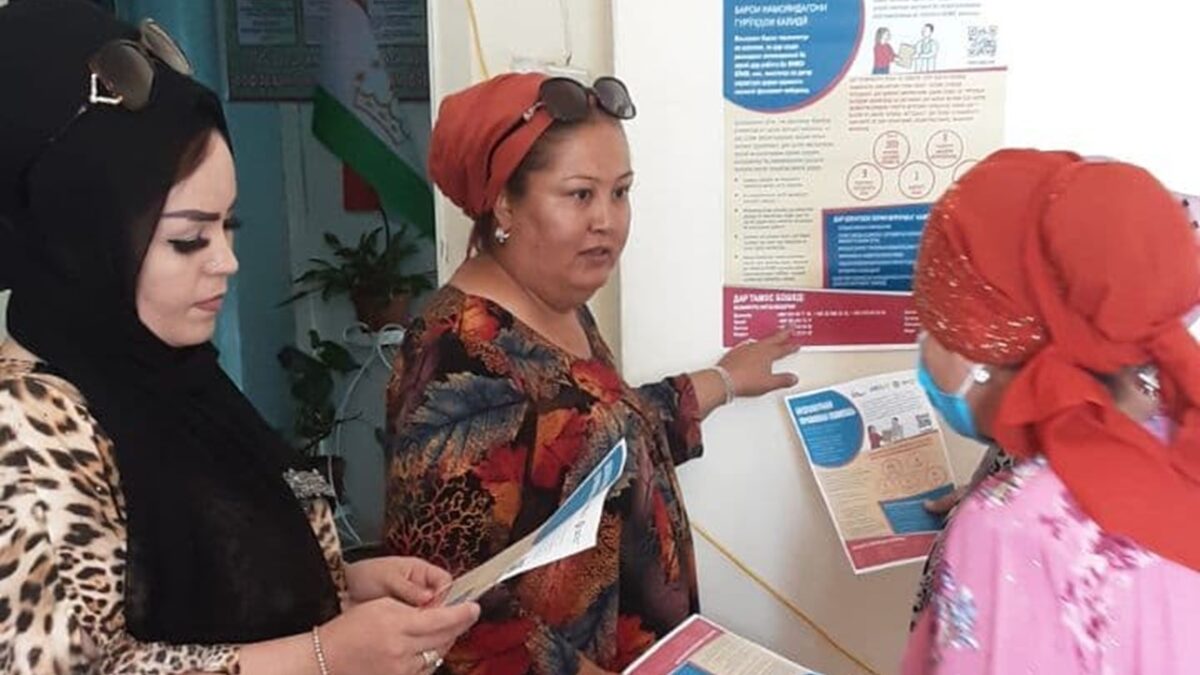In Tajikistan, during 2020-2022 there were registered more than 1000 cases of human rights violations against people living with HIV and representatives of groups at risk. Nearly 60% of such appeals inform about violations by individuals in a form of domestic violence, eviction, stigma, and discrimination on a domestic level. Read detailed statistics here.
Stigma and discrimination in Tajik society are promoted and enrooted by repressive criminalizing laws in the country against people living with HIV. Ignorance and lack of information about HIV and AIDS provoke fear and hatred against HIV-positive family members.
Fatima*, 30 years old lives with HIV.
* name is changed
Fatima met a man and married him. He is also HIV-positive. They live together in his mother’s home with her. The client’s mother-in-law knows about the status of the client and her husband. She always insults, does not allow the client to go to the kitchen or to take the food from the fridge. She says: “You are not allowed to enter the kitchen! I will cook food for the family and you – have to do all cleaning up. I don’t want to get infected with AIDS from you.” At the time when the client wants to go to the mother-in-law’s bathroom, she does not allow, or completely cleans everything from the bathroom. And after that, if the client enters the bathroom, after she washes her entire bath with bleach and chemicals. The client says that she cannot share with her fellings with anyone. Asked for help to talk to the mother-in-law of the clients. The client’s husband agreed REActor to go and talk to his mother.
“At the beginning of my work as a REActor, I heard from clients a lot of stories about domestic violence and hatred due to HIV status. The client’s relatives were so scared of HIV, that they didn`t let one use the shared kitchen and bathroom! I understood, that these violations happen because people do not know how HIV can be transmitted, and how – not. All this was happening due to a lack of information. At that point I understood, that if we provide these people with accurate information on HIV transmission and prevention, maybe – they will stop discriminating their HIV-positive close ones.” – tells one of REActor.
So the strategy “to go and talk to the perpetrator” was chosen as a reaction to such cases, registered in REAct. REActors were provided with informational brochures about HIV prevention and treatment. After the client appealed, REActor was coming to the client’s family to explain that a discriminative attitude toward HIV-positive family members will not help to win a virus, otherwise – such an attitude just keeps a person far from treatment services.
Coming back to Fatima’s case, let’s analyze how this approach worked out.
Psycho-emotional support was provided, information was given on the rights of PLHIV, she was invited to the organization, and a social worker consulted her. The next day, a visit to Fatima’s home was organized to talk to her mother-in-law. Full reliable information was given in an accessible language about HIV, VL, ARV therapy and adherence, about the rights of PLHIV, and about the legislation of the Republic of Tajikistan. After that, the mother of the client’s husband was stunned and wordless. She did not believe that if taken at the time of the pill (ART), there would be no risk of HIV-positive person and there will be no risk of infection. “Having well believed you, I will no longer infringe on the rights of my daughter-in-law and son. Let’s see what happens tomorrow and in the future.” – mother-in-law said. The client and her husband were very happy. In two months we contacted them again to find out about the situation in their home. Fatima assured us that her mother-in-law changed her attitude toward her and that everything is fine in their family.


